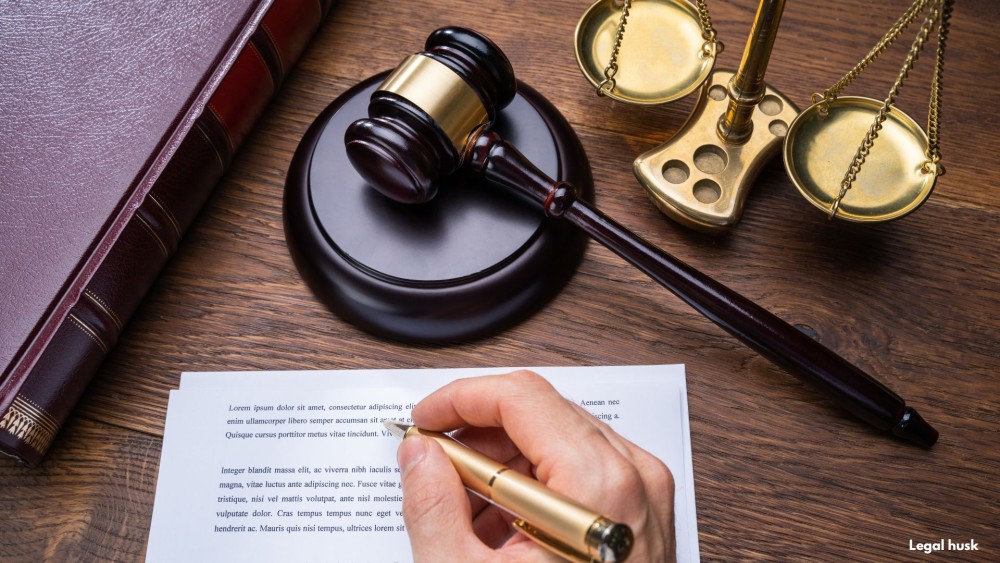Get Your Legal Documents Now!
Whether you are dealing with a complex family matter, facing criminal charges, or navigating the intricacies of business law, our mission is to provide you with comprehensive, compassionate, and expert legal guidance.

Just got sued? Don’t panic—your Answer might be your best legal shield. Learn how to respond to a complaint with confidence and strategy.
When a lawsuit lands on your doorstep, the first step in defending yourself is filing a legal response called an Answer. It’s more than just denying accusations—it’s your chance to push back, assert defenses, and even go on the offensive with counterclaims.
This guide breaks down how the Answer works in civil litigation, including deadlines, components, examples, and best practices to protect your rights.
An Answer is a formal document a defendant files to respond to a civil complaint. It serves three main purposes:
Admitting or denying each allegation in the complaint
Asserting defenses that can defeat or reduce liability
Raising counterclaims, if the defendant has grounds to sue the plaintiff
If no Answer is filed in time, the court may enter a default judgment in favor of the plaintiff—meaning you could lose the case without even being heard.
Timing is everything. The deadline to file an Answer depends on the jurisdiction:
State courts: Typically 20 to 30 days after receiving the complaint
Federal court: 21 days (or 60 days if you waive formal service under Rule 4)
Missing the deadline can lead to a default judgment, where the court may award the plaintiff everything they asked for.
A well-structured Answer includes the following:
Names of the court, parties, and case number.
Respond to each paragraph in the complaint:
Admit what’s true
Deny what you dispute
State lack of knowledge if you genuinely don’t know
Legal reasons why—even if the allegations were true—the plaintiff should not win. Examples include:
Statute of limitations: Claim was filed too late
Improper venue or jurisdiction
Failure to state a claim
If the plaintiff wronged you, you can sue back in the same case.
State what you want the court to do—dismiss the case, award legal costs, or other remedies.
Signed by you or your attorney, verifying the information is true.
IN THE SUPERIOR COURT OF [JURISDICTION]
PLAINTIFF: Jane Doe
DEFENDANT: John Smith
CASE NO.: [XXXXXX]
Answer to Plaintiff’s Complaint
1. General Denial
Defendant denies each and every allegation in the Complaint not specifically admitted below.
2. Specific Responses
Defendant admits entering a contract with Plaintiff on January 15, 2023.
Defendant denies breaching the contract.
Defendant lacks knowledge to admit or deny Plaintiff’s claimed damages.
3. Affirmative Defenses
First Defense: Statute of Limitations
Second Defense: Failure to Mitigate Damages
4. Counterclaim (if applicable)
Defendant asserts a counterclaim for Plaintiff’s breach of contract by failing to perform services as agreed.
5. Prayer for Relief
Defendant requests:
Dismissal of the Complaint with prejudice
Legal costs and attorney fees
Signed,
[Attorney Name]
Attorney for Defendant
Once filed, litigation progresses through several stages:
Discovery: Both sides exchange evidence
Motions: Either party may request dismissal or summary judgment
Negotiation: Many cases settle before reaching trial
Trial: If unresolved, the case proceeds to court
✔ File on time to avoid default
✔ Be clear and consistent in your responses
✔ Use valid defenses—don’t just throw in everything
✔ Add counterclaims when appropriate
✔ Consult a lawyer for guidance tailored to your case
Your Answer is more than a formality—it’s your first and best chance to shape the outcome of a lawsuit. Whether you’re disputing claims or asserting your own, filing a solid Answer protects your rights and positions you for a fair fight in court.
💼 Let Legal Husk Help You File a Strong Legal Answer
At Legal Husk, we specialize in helping defendants craft precise, court-compliant Answers that hold up under pressure.
📌 Need help with your legal response?
From formatting to legal strategy, we’ve got your back.
📞 Reach out today or visit us online to get started.
👉 Visit:
🔗 legalhusk.com
🔗 legalhusk.com/services
🔗 legalhusk.com/services/civil-litigation
🔗 legalhusk.com/about-us
💬 Start strong—start with Legal Husk.
🧠 Pro Tip: If you're unsure about any allegations, say you lack sufficient knowledge—but never ignore a complaint.
📩 Ready to respond with confidence?
Let Legal Husk help you say it right, right from the start.
Whether you are dealing with a complex family matter, facing criminal charges, or navigating the intricacies of business law, our mission is to provide you with comprehensive, compassionate, and expert legal guidance.
Comments